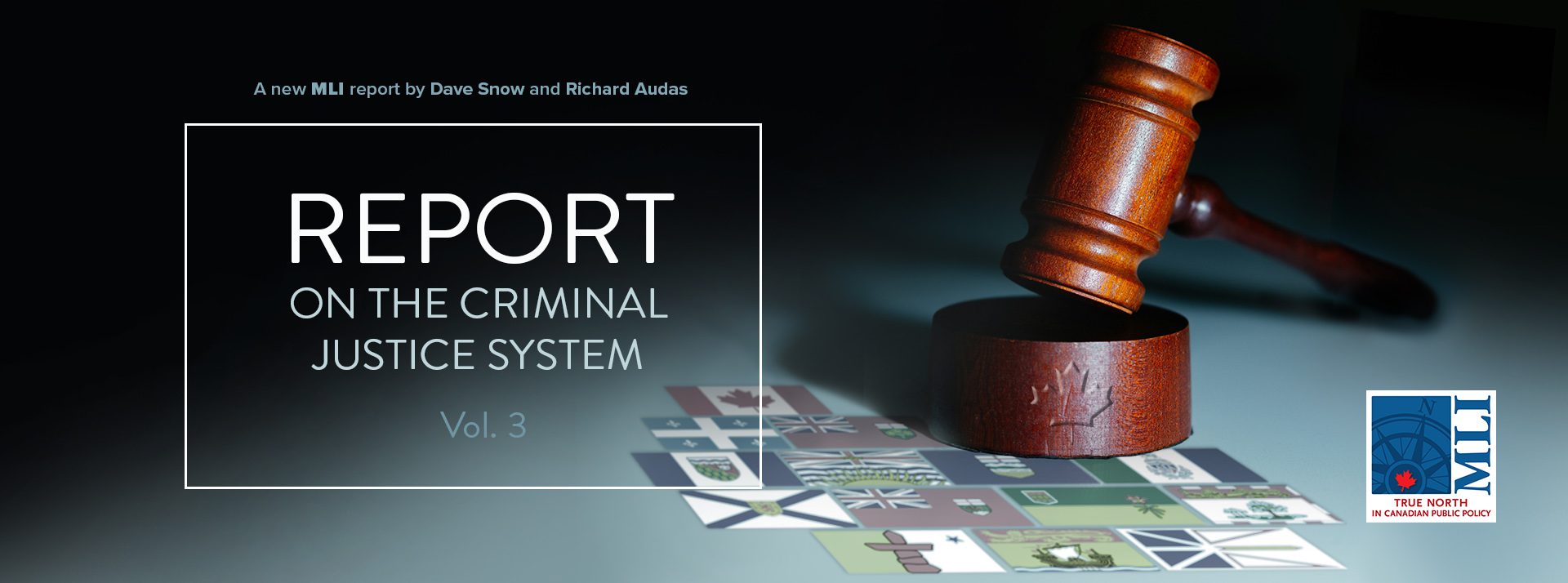- Home
- About
- Experts
- Issues
- Projects
- CNAPS (Center for North American Prosperity and Security)
- The Promised Land
- Voices that Inspire: The Macdonald-Laurier Vancouver Speaker Series
- Dragon at the door
- Canada on top of the world
- Letter to a minister
- Justice Report Card
- The Great Energy Crisis
- DisInfoWatch.org
- Managing Indigenous Prosperity
- Judicial Foundations
- Landmark Cases Council
- Defending The Marketplace of Ideas
- Reforming the University
- Past Projects
- Digital Policy & Connectivity
- Double Trouble
- Canada and the Indo-Pacific Initiative
- The Transatlantic Program
- COVID Misery Index
- Speak for Ourselves
- The Eavesdropping Dragon: Huawei
- Talkin’ in the Free World with Mariam Memarsadeghi
- An Intellectual Property Strategy for Canada
- Munk Senior Fellows
- A Mandate for Canada
- Confederation Series
- Fiscal Reform
- The Canadian Century project
- Fixing Canadian health care
- Internal trade
- From a mandate for change
- Size of government in Canada
- Straight Talk
- Labour Market Report
- Leading Economic Indicator
- Centre for Advancing Canada’s Interests Abroad
- Indigenous Prosperity at a Crossroads
- Events
- Latest News
- Libraries
- Donate
- Home
- About
- Experts
- Issues
- Projects
- CNAPS (Center for North American Prosperity and Security)
- The Promised Land
- Voices that Inspire: The Macdonald-Laurier Vancouver Speaker Series
- Dragon at the door
- Canada on top of the world
- Letter to a minister
- Justice Report Card
- The Great Energy Crisis
- DisInfoWatch.org
- Managing Indigenous Prosperity
- Judicial Foundations
- Landmark Cases Council
- Defending The Marketplace of Ideas
- Reforming the University
- Past Projects
- Digital Policy & Connectivity
- Double Trouble
- Canada and the Indo-Pacific Initiative
- The Transatlantic Program
- COVID Misery Index
- Speak for Ourselves
- The Eavesdropping Dragon: Huawei
- Talkin’ in the Free World with Mariam Memarsadeghi
- An Intellectual Property Strategy for Canada
- Munk Senior Fellows
- A Mandate for Canada
- Confederation Series
- Fiscal Reform
- The Canadian Century project
- Fixing Canadian health care
- Internal trade
- From a mandate for change
- Size of government in Canada
- Straight Talk
- Labour Market Report
- Leading Economic Indicator
- Centre for Advancing Canada’s Interests Abroad
- Indigenous Prosperity at a Crossroads
- Events
- Latest News
- Libraries
- Donate
Newfoundland and Labrador
| Public Safety | B |
| Support for Victims | B+ |
| Costs and Resources | C+ |
| Fairness and Access | B+ |
| Efficiency | C+ |
| Overall Grade | B |
Prince Edward Island
| Public Safety | B+ |
| Support for Victims | A+ |
| Costs and Resources | B+ |
| Fairness and Access | A |
| Efficiency | B+ |
| Overall Grade | B+ |
Nova Scotia
| Public Safety | B |
| Support for Victims | B |
| Costs and Resources | C+ |
| Fairness and Access | B |
| Efficiency | C+ |
| Overall Grade | B |
New Brunswick
| Public Safety | B |
| Support for Victims | C+ |
| Costs and Resources | B |
| Fairness and Access | B |
| Efficiency | B |
| Overall Grade | B |
Quebec
| Public Safety | B |
| Support for Victims | D |
| Costs and Resources | C+ |
| Fairness and Access | B+ |
| Efficiency | B+ |
| Overall Grade | B |
Ontario
| Public Safety | B |
| Support for Victims | C |
| Costs and Resources | B |
| Fairness and Access | C+ |
| Efficiency | C+ |
| Overall Grade | C+ |
Manitoba
| Public Safety | C |
| Support for Victims | C |
| Costs and Resources | C |
| Fairness and Access | C |
| Efficiency | C+ |
| Overall Grade | C |
Saskatchewan
| Public Safety | C |
| Support for Victims | B+ |
| Costs and Resources | C |
| Fairness and Access | C+ |
| Efficiency | B |
| Overall Grade | C+ |
Alberta
| Public Safety | C+ |
| Support for Victims | B |
| Costs and Resources | B+ |
| Fairness and Access | C+ |
| Efficiency | C+ |
| Overall Grade | B |
British Columbia
| Public Safety | C+ |
| Support for Victims | C |
| Costs and Resources | C+ |
| Fairness and Access | D |
| Efficiency | C+ |
| Overall Grade | C+ |
Yukon
| Public Safety | D |
| Support for Victims | A+ |
| Costs and Resources | F |
| Fairness and Access | B+ |
| Efficiency | B |
| Overall Grade | C+ |
Northwest Territories
| Public Safety | D |
| Support for Victims | B |
| Costs and Resources | F |
| Fairness and Access | B |
| Efficiency | B |
| Overall Grade | C |
Nunavut
| Public Safety | C |
| Support for Victims | B |
| Costs and Resources | F |
| Fairness and Access | A+ |
| Efficiency | A |
| Overall Grade | C+ |
Canada’s justice system at a crossroads
MLI’s Third Justice Report Card
(La version française suit)
The Macdonald-Laurier Institute just released our third Justice Report Card, which grades the nation, and each province and territory, on the successes and failures of our criminal justice system.
If this were a real report card it would likely be hidden at the bottom of a backpack and might lead to some awkward conversations around the dinner table. Canada’s criminal justice system is at a crossroads and is clearly performing worse than it was five years ago. Confidence in police and the justice system are worryingly low. And no wonder: the combination of plunging clearance rates and an increasing number of cases stayed or withdrawn gives the perception of a justice system that has given up on its core responsibilities.
Earlier this year, a Macdonald-Laurier Institute report entitled Canada’s Governance Crisis detailed a “systemic failure at both the political and bureaucratic levels to manage complex public policy issues” including energy, Indigenous affairs, and health care. The evidence contained in this report suggests that criminal justice ought to be added to the list.
Highlights:
- Canada’s Violent Crime Severity Index is at its highest point since 2007. The homicide rate is the highest it has been in thirty years, and the police-reported rate for sexual assault is at its highest level since 1995.
- The proportion of Canadians who express confidence in the fairness of the criminal justice system is troublingly low. In 2022, only 62 percent of Canadians expressed confidence in the police, with only 46 percent expressing confidence in the justice system more broadly.
- Arguably the biggest issue with fairness in Canada’s criminal justice system is the overrepresentation of Indigenous peoples in incarceration. The number of Indigenous persons admitted into custody between 2018-2022 has been 6 to 6.2 times higher than the Indigenous proportion of the population during that period, with Indigenous persons constituting 27 percent of the total federal offender population in 2020/21.
- The provincial and territorial criminal justice systems are far less efficient than they were five years ago. More cases are being stayed or withdrawn; the criminal cases that do make it to trial take longer to be resolved; and police are solving fewer crimes, especially the most important crimes.
- The trends can no longer be blamed on the pandemic. There is some evidence of spikes (or drops) across the board in certain metrics for 1-2 years that could potentially be traced to the pandemic, but most of the negative trend lines both precede and succeed the pandemic.
- There were notable changes between the 2017 and 2023 criminal justice report cards, including a considerable jump in ranking from Alberta, and a major decline in the overall ranking for Ontario.
- The territories continue to have shockingly high rates of crime per capita that far exceed the numbers in any province – for example, the violent crime rate in Nunavut and the Northwest Territories were more than 12 times higher than in Ontario. Among the provinces, violent crime rates are highest in Manitoba and Saskatchewan, and lowest in Ontario.
Check out the full report for a detailed grading and evaluation of Federal, Provincial and Territorial trends across the defined categories of Public Safety, Support for Victims, Cost and Resources, Fairness and Access to Justice, and Efficiency.
For further information, media are invited to contact:
Skander Belouizdad
Communications Officer
613-482-8327 x111
skander.belouizdad@macdonaldlaurier.c
Le système canadien à un tournant
Troisième bilan de l’IML sur le système de justice
Le troisième bilan du système de justice (Justice Report Card) que l’Institut Macdonald-Laurier vient de publier vise à attribuer une note au pays, y compris à chaque province et territoire, sur la base des réussites et des échecs de son système de justice pénale.
S’il s’agissait d’un bilan réel, on l’aurait sûrement caché au fond d’un tiroir, car il pourrait susciter de gênantes conversations autour des tables de cuisine. En effet, le système de justice pénale canadien se retrouve à un tournant, ses résultats s’étant nettement détériorés par rapport à il y a six ans. La confiance envers la police et le système de justice accuse une faiblesse inquiétante. Il n’y a là rien d’étonnant à cela : la combinaison de taux de résolution en chute libre et du nombre croissant de causes suspendues ou retirées donne l’impression que le système a renoncé à ses responsabilités premières.
Selon un récent rapport de l’Institut Macdonald-Laurier ‒ Canada’s Governance Crisis ‒ le système fait preuve d’une incapacité systémique, tant sur le plan politique que bureaucratique, à gérer des questions complexes de politique publique. Cela comprend les domaines de l’énergie, des affaires autochtones et des soins de santé. Les faits présentés dans ce rapport permettent d’ajouter la justice pénale à cette liste.
Points saillants :
- Lorsque bien des gens pensent à la sécurité publique, ils pensent aux crimes violents ‒ et sur ce plan, le constat n’est pas réjouissant. L’Indice de gravité des crimes violents au Canada est le plus élevé depuis 2007. Tandis que le taux d’homicide atteint un sommet en trente ans, les données de la police font état du plus haut taux d’agressions sexuelles depuis 1995.
- La proportion de Canadiens qui ont déclaré ne pas douter du caractère équitable du système de justice pénale inquiète. En 2022, seulement 62 % d’entre eux ont indiqué avoir confiance dans les services de police, et 46 % dans le système de justice en général.
- La surreprésentation de la population autochtone constitue vraisemblablement le principal problème du système canadien de justice pénale en matière d’équité. Entre 2018 et 2022, la proportion d’Autochtones placés en détention a été de 6 à 6,2 fois supérieure à celle de ce groupe dans la population totale, de sorte que, en 2020/2021, les Autochtones constituaient 27 % de l’ensemble de la population carcérale fédérale.
- Les exemples d’inefficacité se sont multipliés dans tout le pays : le pourcentage de causes suspendues ou retirées a augmenté dans chaque province et territoire depuis 2017, tout comme la durée médiane des procédures pénales, tandis que le taux des crimes résolus s’est affaibli. Les taux pondérés de résolution, fondés sur les crimes violents et non violents, ont suivi une tendance négative dans toutes les administrations.
- Des changements notables sont intervenus entre les bilans de 2017 et de 2023, notamment en raison d’un bond considérable du classement de l’Alberta et d’un recul important du classement général de l’Ontario.
- Les territoires continuent d’afficher des taux de criminalité par habitant scandaleusement élevés, dépassant de loin ceux des provinces ‒ par exemple, le taux de crimes violents au Nunavut et dans les Territoires du Nord-Ouest dépasse de plus de 12 fois celui de l’Ontario. Parmi les provinces, le taux de crimes violents est le plus élevé au Manitoba et en Saskatchewan, et le plus bas en Ontario.
Le rapport complet présente en détail le classement et l’évaluation des tendances fédérales, provinciales et territoriales dans les catégories définies relativement à la sécurité publique, l’aide aux victimes, les coûts et les ressources, l’équité et l’accès à la justice, ainsi qu’en matière d’efficacité.
Pour plus d’informations, les médias sont invités à contacter :
Skander Belouizdad
chargée de communication
613-482-8327, poste 111
skander.belouizdad@macdonaldlaurier.ca
Authors

Dave Snow
Senior Fellow,
Macdonald-Laurier Institute
Associate Professor,
Department of Political Science,
University of Guelph
Read Bio
Dave Snow is an Associate Professor in the Department of Political Science at the University of Guelph and a Senior Fellow at the Macdonald- Laurier Institute. He teaches in the undergraduate Criminal Justice and Public Policy program and was the graduate coordinator of the Criminology and Criminal Justice Policy program from 2018-2020. His research and teaching interests include criminal justice, public policy, constitutional law, and federalism. Professor Snow currently holds a Social Sciences and Humanities Research Council (SSHRC) Insight Grant to empirically evaluate the way the Supreme Court of Canada permits reasonable limits on rights.

Richard Audas
Senior Research Fellow, Macdonald-Laurier Institute
Professor of Health Statistics and Economics, Faculty of Medicine, Memorial University of Newfoundland and Labrador
Read Bio
Richard Audas is a Professor of Health Statistics and Economics in the Faculty of Medicine at Memorial University of Newfoundland and Labrador and is a Senior Research Fellow at the Macdonald- Laurier Institute. Richard is the Director of the Newfoundland and Labrador Centre for Applied Health Research as well as the Director of the Memorial University Statistics Canada Research Data Centre. He has co-authored numerous reports for the Macdonald-Laurier Institute in addition to a diverse range of peerreviewed academic publications.
Newsletter Signup
|
|
Thank you for Signing Up |

Macdonald-Laurier Institute
323 Chapel Street, Suite #300
Ottawa, Ontario, K1N 7Z2 Canada
613.482.8327
Support Us
Support the Macdonald-Laurier Institute to help ensure that Canada is one of the best governed countries in the world. Click below to learn more or become a sponsor.
© 2023 Macdonald-Laurier Institute. All Rights reserved.

